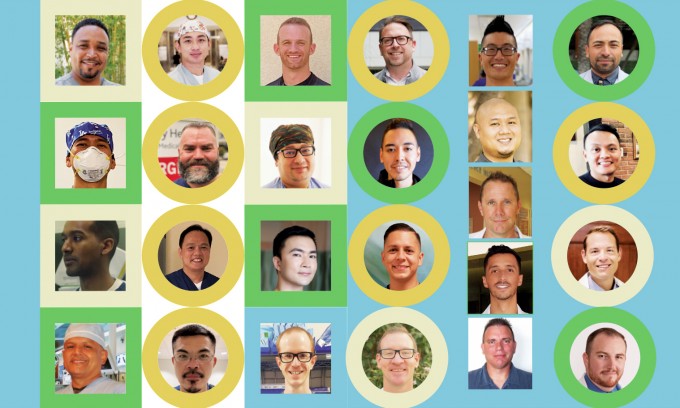Changed by COVID-19
Many respondants hope the public will take to heart the infection control guidelines the pandemic has taught, leading to what Adam Fronczek optimistically calls “a happier, cleaner and healthier society post-COVID-19.”
“Being mindful of handwashing, covering your mouth and sanitizing frequently touched areas are all simple steps to prevent the spread of infection,” notes Michael Zunde. “We could see a much less severe cold and flu season if everyone practiced these acts of hygiene.”
Some respondents also expressed hopes that the pandemic will draw new attention to other areas of population health. “I hope that after this crisis, individuals better understand the importance of preventive medicine,” says John Ferrer. “I strongly believe that routine health screenings and vaccinations are necessary to prevent future pandemics and enable communities to thrive.”
Devon Denholm hopes that the dialogue about the psychological impact of COVID-19 will help to end “the stigma that surrounds mental health.”
Grady Williams is excited about the possibilities for telemedicine, which the pandemic has moved into the spotlight. “I hope this technology can be used to expand access to care, improve management of acute or chronic conditions and reduce unnecessary ER visits,” he says.
Delsean Hart hopes that if current research efforts yield a COVID-19 vaccine in the near future, there will be “a similarly herculean effort to find cures or vaccines for other diseases.”
The Next Crisis
Not everyone is so confident COVID-19 will be conquered.
“I personally believe that COVID-19 will not be a thing of the past, but is something we will have to continue to manage seasonally or year-round,” warns Jesse Lopez. Martin Espina is hedging his bets. “While COVID-19 may eventually see an end, I don’t think pandemics will ever become a thing of the past,” he says.
Ricardo Alan De Barros hopes “that our community learns to better prepare for another pandemic, and that in the future, people do not panic and hoard toilet paper and water, putting the population at even greater risk.”
Some respondents hope the lessons of this pandemic will lead to significant systemic changes. “Sometimes, to improve a system, you must first test its limits and find out where the weaknesses lie,” says Mike Estona. “I hope this horrible situation results in lasting improvements not only to the healthcare field, but also to the supply chain we rely upon for critical medical supplies.”
Aaron Acquisto takes a more philosophical position. “I would like to see humankind emerge with a much greater sense of connection,” he says. “Stop and greet someone, say hello, wave or provide a helpful gesture or compliment. These are things that society needs more of: compassion and positivity in action!”
In this Article: Leadership and Management, Men in Nursing, Men in Nursing 2020, Nursing Workforce














